The Greatest Villains of Every Myers-Briggs Type – Part 2 – The NT Types
Over the next couple of weeks, we’re going to be talking about villains that match up with all 16 Myers-Briggs types. On Sunday, we talked about the idealists. Today let’s get to know the rational (NT) villains. These bad guys are some of the most clever, inventive, and formidable individuals you’ll ever meet on-screen. They often have a twisted sense of humor and an ingenious grasp of logic. This intriguing blend makes NT types some of the most memorable and frightening villains in Hollywood history.
Not sure what your personality type is? Take our new personality questionnaire here. Or you can take the official MBTI® here.
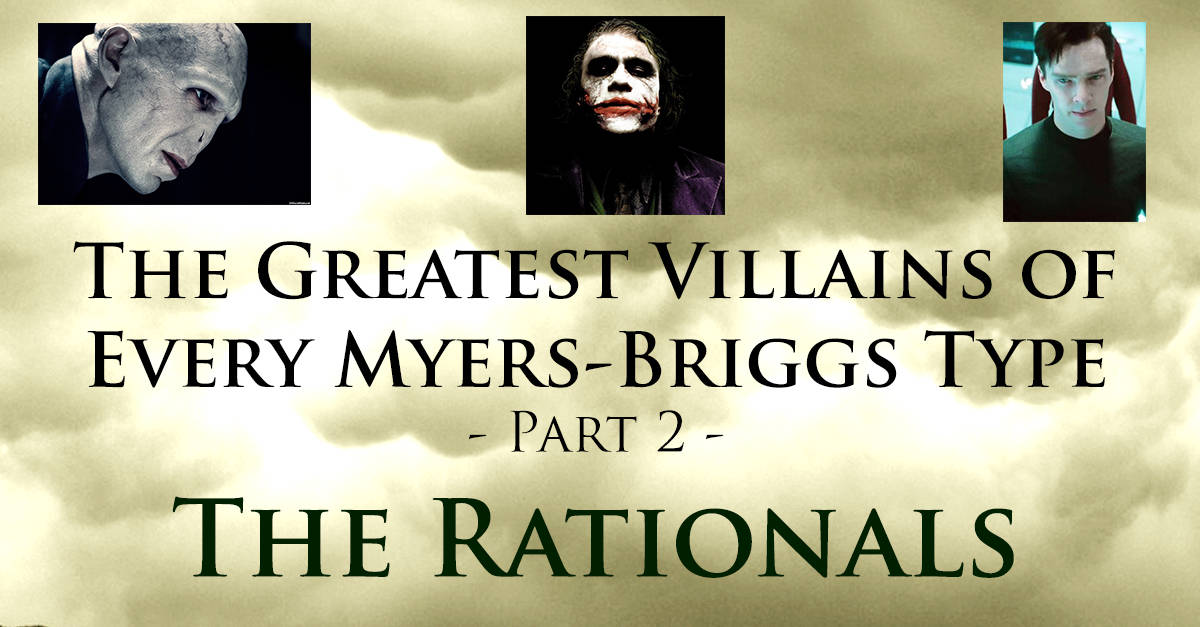
Want to find the NF villains? Click Here
SP villains? Click Here
SJ villains? Click Here
I’d love to get your thoughts and opinions on these bad guys, so please leave a comment here or on my facebook page.
So let’s get to the good stuff…
INTJ – Khan from Star Trek Into Darkness
Khan is single-minded in his goals and ruthless in their execution. He analyzes the people and incidents around him and manipulates everything to bring about his desired result. Life is like a game of chess for Khan, he just has to get everyone into the right places to win. He’s completely unaffected by personal criticism and he shows no sympathy when giving his opinions. We see the INTJ combination of Ni (Introverted Intuition) and Te (Extraverted Thinking) when he vocalizes his goals and plans.
“Well, let’s play this out logically then, Mr. Spock. Firstly, I will kill your captain to demonstrate my resolve, then if yours holds I will have no choice but to kill you and your entire crew. Your crew requires oxygen to survive, mine does not. I will target your life support systems located behind the aft nacelle. And after every single person aboard your ship suffocates, I will walk over your cold corpses to recover my people. Now, shall we begin?”
We see Khan’s use of Introverted Feeling (Fi) in his desire to regain his crew. He has such a strong emotional bond to them and will do anything he can to keep them safe. He doesn’t care who he has to kill to guarantee their livelihood – to Khan, his crew is his “family”.
“Marcus had killed every single one of the people I hold most dear. So I responded in kind. My crew is my family, Kirk. Is there anything you would not do for your family?”
We see Khan’s use of inferior Extraverted Sensing (Se) with his excellent reflexes and his ability to act in the moment when called for. Because he has been genetically engineered to be so strong and resilient, he’s a little stronger of a Se user than most INTJs would be.
INTP – Smaug from The Hobbit
Finding an INTP villain was a daunting task – I considered David from Prometheus, but I haven’t seen the movie so I couldn’t really give an informed opinion (other than what I’ve read about him). INTP villains are hard to find because they aren’t naturally directive like NTJ villains would be. They don’t particularly want to push their agenda on anyone, and are more likely to hurt people in an effort to get something else they want then to hurt people out of some desire to control or have power. INTPs would rather be left alone than to be stuck with any minions or servants.
Smaug fits the INTP description best out of every villain I could find. He’s driven by an insatiable curiosity, and is excellent at forming counter-arguments and theories based on his combination of Introverted Thinking and Extraverted Intuition. He doesn’t always seek information for any particular purpose (as a Te-dominant would) but simply for his own amusement and delight. When Smaug lets the Arkenstone fall within reach of Bilbo, his curiosity is evident:
“I am almost tempted to let you take it, if only to see Oakenshield suffer, watch it destroy him, watch it corrupt his heart and drive him mad… But I think not. I think our little game ends here! “
Smaug doesn’t necessarily want to have world domination or total control – he just wants his Lonely Mountain and the treasure inside it all to himself. He feels he has earned it. He uses his Ne (Extraverted intuition) to instinctively grasp where Bilbo is hiding, and he tries to exploit Bilbo’s weaknesses to his own advantage using a combination of intuition and feeling.
“You are being used, Thief in the Shadows. You were only ever a means to an end. The coward Oakenshield has weighed the value of your life and found it worth nothing…”
Smaug’s Introverted Sensing (Si) appears in the way he vividly remembers claiming the mountain, and likes to bring it up in conversation. His former experience of claiming the mountain makes him feel that it is forever his. His inferior Fe (Extraverted Feeling) allows him to manipulate people, sensing their fear and preying on it. It also proves to be his acchilles heel, allowing Bilbo’s flattery to influence him and, ultimately, lead him astray by his own arrogance.
ENTJ – Tom Riddle/Lord Voldemort from Harry Potter
Lord Voldemort/Tom Riddle from Harry Potter was one of the easier villains to type. He is the perfect example of an extremely unhealthy ENTJ (with destructive magical powers). He’s quick and efficient in his actions and doesn’t have patience for anyone or anything that will slow him down (unless it’s one of his own speeches). His feelings come out in his actions, in his need to be in charge – he wants to be the ultimate power in the world. He shows his strong Te (Extraverted Thinking) by how he develops plans and puts them into action quickly and efficiently. He also shows unhealthy Te by his desire to control and dominate everything and everyone.
“There is no good and evil. There is only power, and those too weak to seek it.”
Voldemort shows his Ni (Introverted Intuition) in how he organizes everything to achieve one main goal – immortality and power. Everything he does, regardless of how long it takes, is part of that goal – from making horcruxes to manipulating the teachers at Hogwarts as a young wizard. He is single-minded in his efforts and unflinching in his dedication to creating his ideal world.
We see Voldemort’s Se (Extraverted Sensing) in the way he likes to “show off” and brag about himself. He likes to make a scene, to make an impact, and can be incredibly self-indulgent, which is an example of unhealthy Se. He can act impulsively, such as when he killed Lily Potter, and he has a certain theatrical quality to the way he speaks and performs.
Voldemort’s inferior Fi (introverted feeling) shows its dark side in his resentment over his childhood abandonment. He only thinks of what he wants and has no regard for anyone else’s feelings – he understands hatred and hatred only. This obsession with his own feelings (hatred and resentment) are what undermine him in the end.
ENTP – The Joker
I’m sure many ENTPs are going to be glad to have the Joker as their main villain – he’s simultaneously one of the most hated and most loved villains in movie history. He’s also an excellent example of a villain with an ENTP method. I know he’s technically mentally unstable, but even with that, he still executes his evil schemes in an unstable ENTP fashion, not an unstable ISTJ/ESTP/INFJ fashion.
The Joker sees possibilities everywhere, and find opportunities in what others would see as unrelated occurrences. He sees patterns and ideas in the most obscure connections. This is one of the hallmarks of Ne (Extraverted Intuition). Ne-dominant types see opportunities where others wouldn’t, and jump on them quickly. They are easily bored with anything routine or repetitive – they want new challenges and new adventures.
The Joker enjoys toying with Bruce Wayne, employing his Ti (Introverted Thinking) to have an inner sense of logic that none of his opponents can see or understand. The combination of Ne and Ti that the joker has gives him a twisted sense of “fun” and a desire to play people and compete with them mentally. He sees Bruce Wayne as a true challenge – someone who will match his intellect, someone who will entertain and test him.
“You won’t kill me out of some misplaced sense of self-righteousness. And I won’t kill you because you’re just too much fun. I think you and I are destined to do this forever. “
The Joker doesn’t think in terms of “good” or “bad”. He’s skeptical of moral absolutes, as ENTPs often are. This isn’t to say that ENTPs are morally corrupt – the Joker is, of course, but ENTPs in general are just very wary of believing something to be good or bad just because someone said so. They have to hold ideas or morals up to scrutiny and debate to see if they still hold true.
The Joker shows his tertiary Fe (Extraverted Feeling) in the way he can easily read people’s motivations and use them to manipulate and intimidate them. He enjoys “playing” with people and toying with their feelings while feeding off of their fear. He uses his Fe to make people react, to make people respond in the way he desires.
“Do you want to know why I use a knife? Guns are too quick. You can’t savor all the… little emotions. You see, in their last moments, people show you who they really are. So in a way, I know your friends better than you ever did. Would you like to know which of them were cowards? “
Lastly, the Joker shows his inferior Si (Introverted Sensing) in the way he determines the future actions of people based on their past actions. He also creates contingency plans in case one of his other plans falls through.
Find out more about your personality type in our eBook, Discovering You: Unlocking the Power of Personality Type.
In Conclusion
I hope you liked this post! If you want more MBTI villain knowledge you can check out the Idealist Villains here. Next week I’ll write about the greatest Artisan (SP) Villains! If you have any comments, suggestions, or criticisms let me know in the comments!
Subscribe to Our Newsletter

Want to discover more about personality type? Get the inside scoop with Susan Storm on all things typological, along with special subscriber freebies, and discounts on new eBooks and courses! Join our newsletter today!


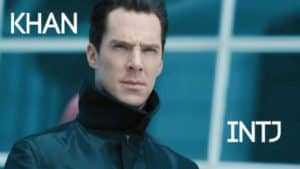
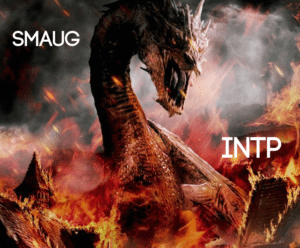
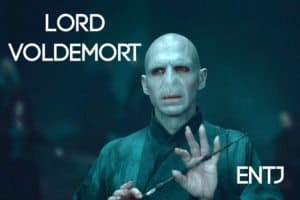
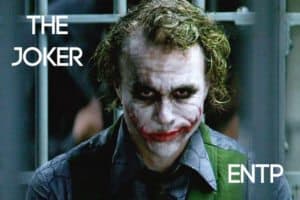

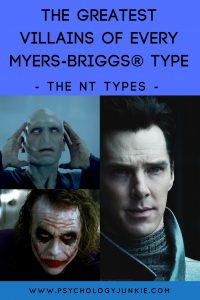









I think the Joker from The Dark Knight might be more an ENFP. The traditional depiction of Joker is ENTP, but he’s different.
His search for authenticity and honesty in society is a sure sign of Fi, strong moral sense even if twisted. His capability to manipulate is that of an ENFP, out of this world, he knows every living souls’s weakness, he reads peoples minds, and he’s definitely personal. An ENTP villain would be more playful and more general in terms of soceity issues, but this Joker is very specific about Batman and Harvey Dent. He almost feels frustration when his plan the two boats blow up each other fails, he reminds me so much of Kurt Cobain, and he was a Feeler.
So I think The Dark Knight’s Joker is an ENFP. And part of its charm and thus popularity is that we so rarely see and ENFP villain. What do you think?
Omg. I’ve been trying to explain exactly what you said to my friends for years. The joker is deff usually ENTP but what mad Heath ledgers joker so fantastic and different was that little change from a thinker to a feeler. His desire to see the world in chaos, his ability to break each person down on a personal level. I think in general people prefer to think that ENFP is not logical….tertiary Te allows them to bring logic to every decision even if it is not more systematically logical. It is very Fi, Te to burn a pile of money to prove a point…..
Since Heath ledger is an INFP, I can see how you could be right.
1st list of this nature I’ve seen that doesn’t make Moriarty the #1 INTJ “bad guy”….interesting
Moriartry is more of a ENTP, hands down.